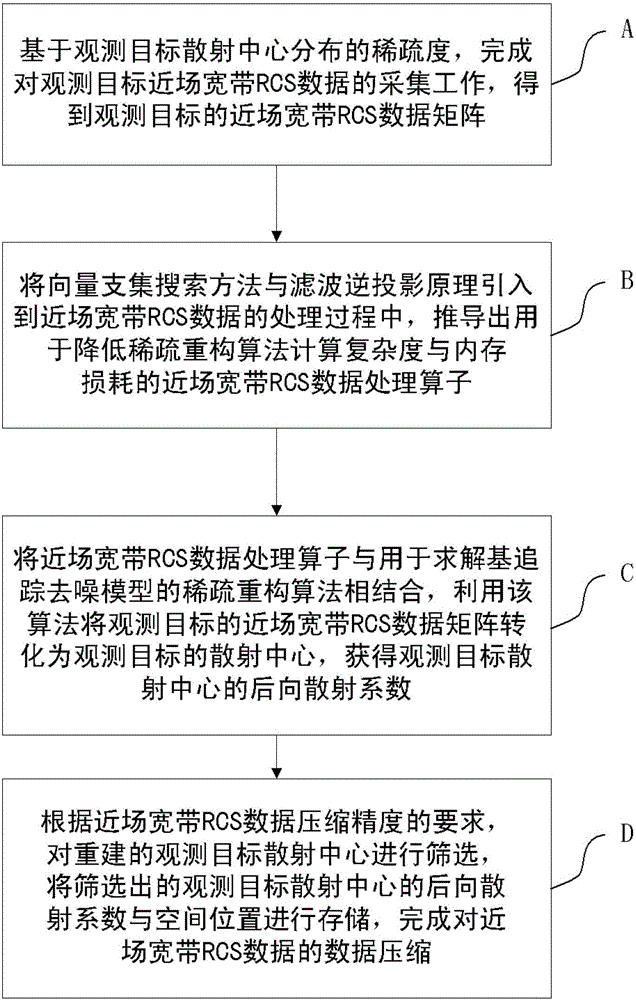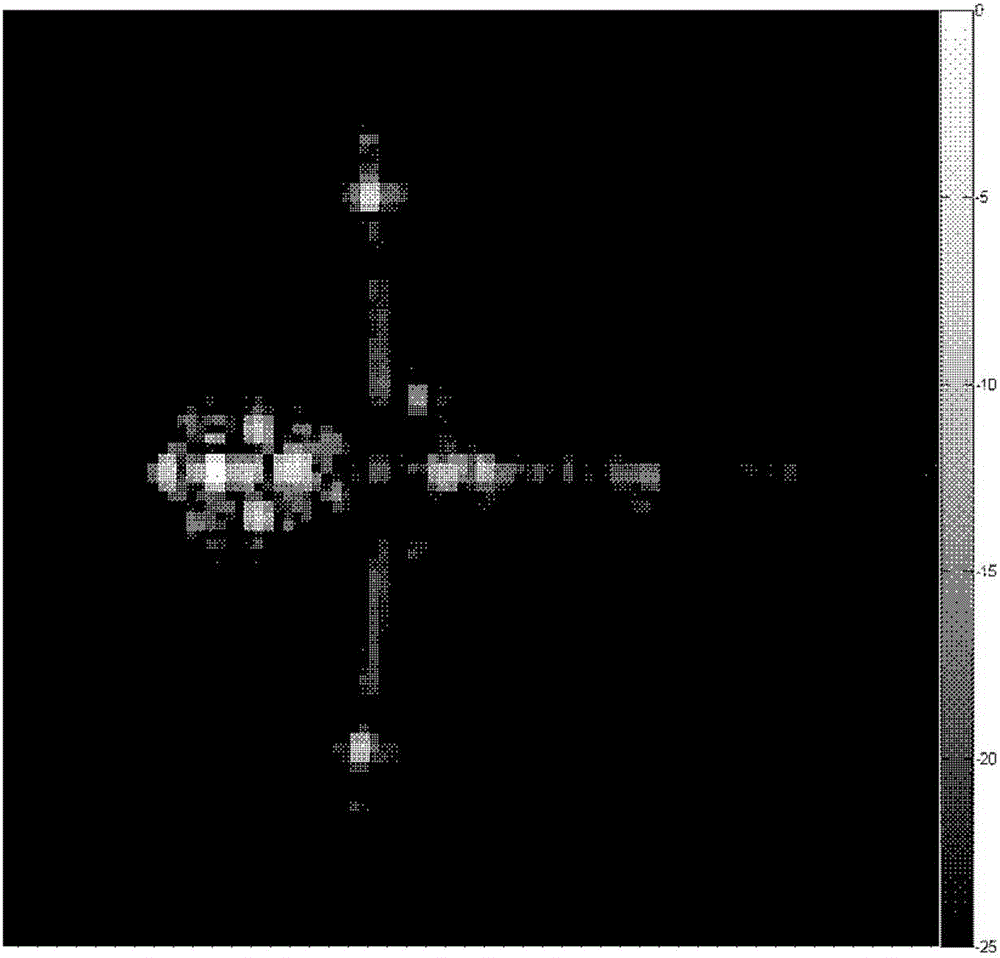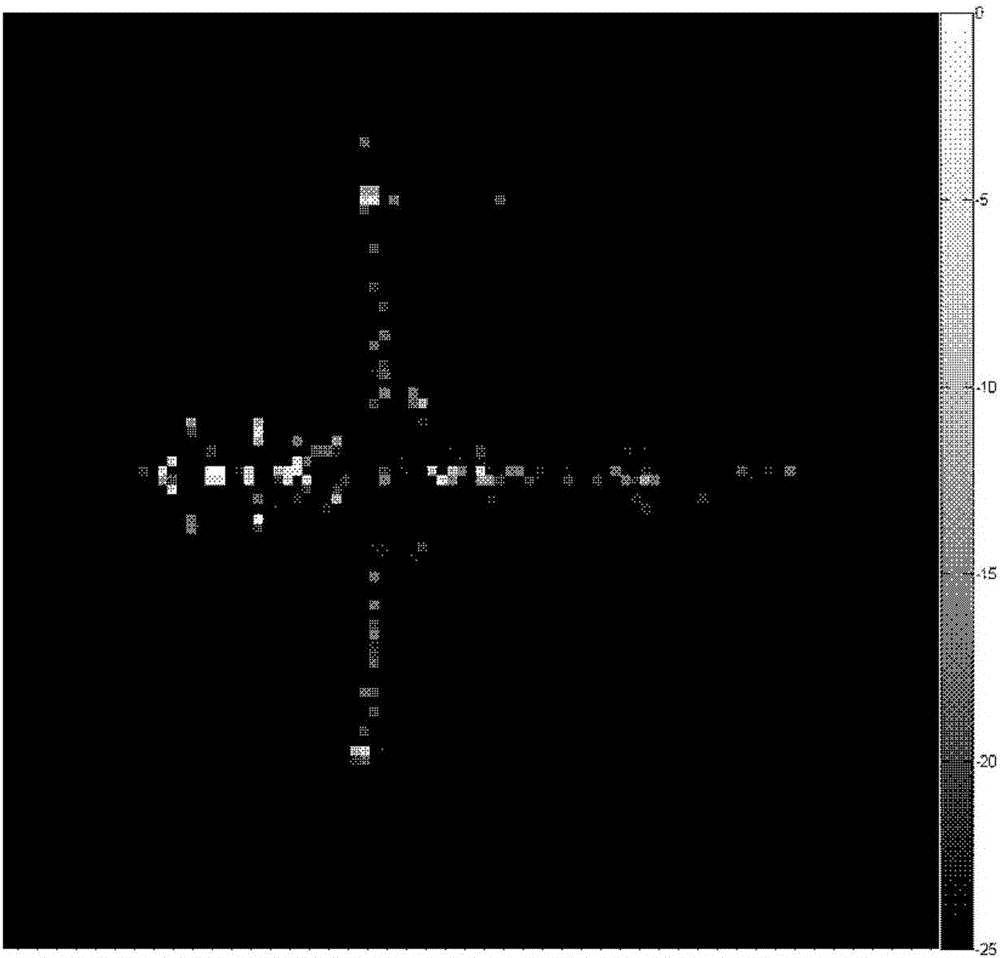Near-field broadband RCS (Radar Cross Section) data acquisition and compression method based on basis pursuit denoising
A compression method and data acquisition technology, applied to radio wave measurement systems, instruments, etc., can solve the problems of frequent maintenance of storage devices, low system work efficiency, and large storage space, and reduce computational complexity and memory loss. Reduced loss, precise effect of data compression process
- Summary
- Abstract
- Description
- Claims
- Application Information
AI Technical Summary
Problems solved by technology
Method used
Image
Examples
Embodiment Construction
[0015] In the radar cross-section measurement experiment based on the ground-based platform, the distribution of the scattering center of the observed target usually has good sparsity. ). The total amount of actual measurement of RCS data is reduced by random downsampling in azimuth and elevation, and then the acquired echo data is converted into observation Scattering center of the target to achieve data compression for RCS data. In order to reduce the loss of radar target electromagnetic scattering characteristic information in the process of data compression, the SPGL1 algorithm (spectral projection gradient algorithm based on L1 norm penalty term) is selected as the method for reconstructing the scattering center of the observed target.
[0016] SPGL1 is an accurate and effective sparse signal reconstruction algorithm. The algorithm uses the root-finding method based on Newton iteration to update the regularization parameter value on the Lasso model Pareto curve, so that...
PUM
 Login to View More
Login to View More Abstract
Description
Claims
Application Information
 Login to View More
Login to View More - R&D
- Intellectual Property
- Life Sciences
- Materials
- Tech Scout
- Unparalleled Data Quality
- Higher Quality Content
- 60% Fewer Hallucinations
Browse by: Latest US Patents, China's latest patents, Technical Efficacy Thesaurus, Application Domain, Technology Topic, Popular Technical Reports.
© 2025 PatSnap. All rights reserved.Legal|Privacy policy|Modern Slavery Act Transparency Statement|Sitemap|About US| Contact US: help@patsnap.com



